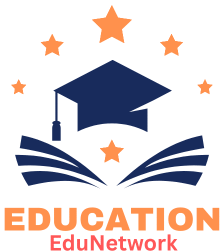In today’s competitive academic environment, parents and students often seek the counsel of experts in order to make informed decisions about their children’s education. Educational advisors play a crucial role in this regard. But how exactly can educational consultants help, and what can you expect from them as you or your child navigate the educational system? In this detailed guide, we will discuss the primary responsibilities of educational consultants, the benefits they provide, and the reasons why hiring one might be a wise choice for your academic journey.
Exactly What Is an Educational Consultant?
Educational consultants are professionals that provide schools, parents, and students with advice and guidance based on their extensive expertise of the field. Helping individuals achieve their academic and career objectives is their top priority, and they strive to do this by advising them on the best educational choices. Among the many services offered by educational consultants include help with applying to colleges, universities, and boarding schools, as well as career counseling, test prep, and learning strategies.
Educational Consultants’ Responsibilities Are the Subject of This Concentrate
Then, what exactly do educational consultants do all day long? Depending on their customer, their responsibilities may vary, however these are some of the most common services they offer:
1. Establishing Objectives and Organising Academics
Consultants in the field of education assess each student based on their past performance, current abilities, areas of weakness, and future goals. On the basis of this evaluation, they provide a hand in crafting an individualised curriculum. Class selection, extracurricular involvement, and tutoring support are all ways to boost a student’s profile.
They work closely with kids to set realistic, measurable learning goals and build a strategic plan to achieve them.
2. We Guide Students Through the College Admissions Process
One of the most common areas where educational advisers provide aid is in the college applications process. What follows is:
-
Selecting the best colleges or universities in light of career aspirations, available funds, and academic fit
-
Making sure that students are aware of when things are due and how to apply
-
Academic writing assistance, including essays and personal statements
-
Making preparations for interviews with colleges
-
Oversight of scholarship and grant programs
In order to provide you the best advice possible, they keep themselves updated on admission trends, regulations, and acceptance rates.
3. Making the Most of Standardized Exams
When applying to schools, standardized tests like the SAT, ACT, GRE, and GMAT play a significant role. Educational advisors help students maximize their performance by assisting them in developing a study program and choosing relevant exams to take. Some consultants partner with test prep centers, while others conduct their own instruction, to guarantee that their pupils are well-prepared.
4. Career and Vocational Counseling
In addition to assisting with academic planning, educational advisers may provide guidance on potential careers. They aid students in exploring potential career paths by analyzing their interests, abilities, personality tests, and other personal data. People in the workforce considering a career change or students in high school unsure of their major could find this very helpful.
5. Assisting Students with Disabilities
Some educational consultants focus on helping students who struggle emotionally, academically, or within the autistic spectrum. Depending on the specific needs of each child, these consultants help families find appropriate programs, schools, or accommodations. They are well-versed in special education laws and may advocate for the student’s rights inside the school system.
6. Enrollment in Private and Boarding Schools
Whether a family is deciding between private or boarding schools, educational consultants may help by analyzing the child’s profile and making recommendations for schools that would be a good fit academically and socially. They aid with applications, entrance exams, and interviews in the same way that college admissions advisers do.
7. Advice on Studying Abroad
Because education is becoming more accessible all across the world, more and more students are considering studying abroad. Consultants in this field often advise students on matters such as international school options, visa requirements, and academic systems in foreign countries. In addition, they provide a hand with paperwork, admission requirements, and cultural preparation.
8. Help with Homeschooling Curriculum Design
When families want to educate their children at home, educational consultants may help design a program that fits each student’s needs, interests, and learning style. Furthermore, they ensure that the curriculum meets national or state educational requirements, provide tools, and track progress.
9. Working Together with Educational Institutions
Education consultants deal with more than just individuals. Schools, organizations, or other places of learning employ some to:
-
Take a look at some teaching programs
-
Provide training to faculty and staff
-
Make a curriculum
-
Increase the efficiency of the organization
-
Inspire long-term planning
Their objective views could help groups make smart decisions that are good for kids and educators.
How Come an Education Consultant Is Necessary?
Understanding the value that educational consultants provide is essential after discussing their roles. Here are some of the key benefits of hiring one:
The First: Expertise and Background
Career guidance, admissions processes, and educational systems are all areas in which educational advisers excel. Their expertise allows them to tailor their recommendations to each student by considering their unique background and goals.
Second, Individualized Attention
School counselors often have a large caseload, while educational consultants provide individual counseling sessions. This allows for academic planning and decision-making to be more purposeful and personalized.
3. Time Management
Making preparations for standardized tests, academic goals, or admissions tests might be a huge challenge. Educational counselors assist students in staying on track and organized to meet crucial deadlines by simplifying the process.
4. Reducing Stress
Navigating the school system may be stressful for both parents and kids. A consultant takes care of the nuts and bolts, clarifies things, and offers moral support throughout.
Five. An Edge in the Market
The competition for admission to top universities is heating up, but with the aid of an educational adviser, students can stand out. From selecting relevant extracurriculars to crafting compelling essays, consultants are experts at helping students build strong applications.
Advice on Choosing an Effective Educational Advisor
Choosing the right educational counselor is crucial. To help you choose a qualified specialist, consider the following advice:
-
Expertise: Look for advisors who are members of reputable groups like the IECA or the National Association for College Admission Counseling (NACAC).
-
Ask about their education, work history, and specializations to get a sense of their level of experience.
-
Contact former clients or ask for their contact information as recommendations.
-
Examine the consultant’s plan to make sure it aligns with your goals and principles. Building a good rapport is essential for a successful cooperation.
-
Keep all information on the consultant’s availability, services, and costs clear before making a commitment.
Common Misconceptions About Educational Consultants
1. “Only Rich Families Can Use Them”
While some consultants charge exorbitant rates, the majority provide sliding scale or moderately cost services. Some institutions and NGOs also provide educational counseling to low-income families.
2. “Only Underperforming Individuals Require Consultants”
In no world is this accurate. Educational advisors work with a wide range of student populations, including high achievers, average performers, and those struggling academically. Assisting and improving a student’s journey is the purpose, regardless of where they start.
3. “Common Services Offered by School Counselors”
School counselors are invaluable, but they have a lot of students vying for their attention. When compared to traditional school systems, educational consultants are able to provide more individualized and focused support.
Last Thoughts
Consulting with educational institutions, what are their responsibilities? They help navigate the complex world of education by acting as champions, strategic allies, and guides. No matter what your situation is—whether you’re struggling to study, trying to decide between different boarding schools, getting ready for college, or researching potential careers—an educational consultant can help you make educated decisions.
In this day of increased diversity and competition in the field of education, having a dedicated expert on your side could be crucial. If you are willing to put money into your academic future, hiring an educational consultant might be the next logical step.
